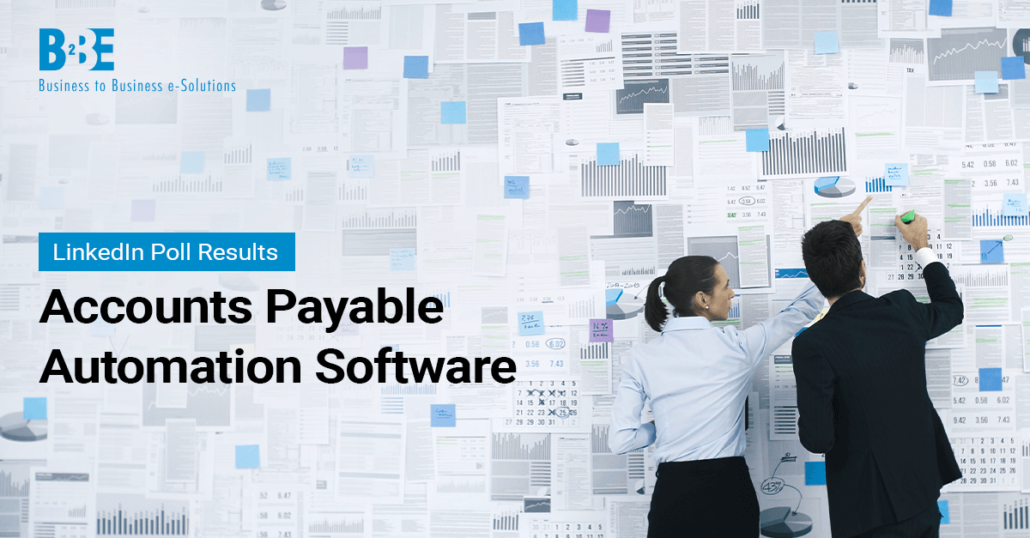In this article, we explore the main benefits of accounts payable invoice automation, using results form our most recent poll.
Organisations across various industries are constantly seeking ways to optimise their operations and maximise productivity. One area that often proves to be a challenging yet crucial aspect of business management is accounts payable. Keeping track of invoices, managing payments, and ensuring accuracy can be a labour-intensive process prone to human errors and delays.
However, with the advent of advanced technology and automation solutions, businesses now have the opportunity to revolutionise accounts payable workflows. By embracing accounts payable invoice automation, companies can unlock a multitude of benefits. This includes improved efficiency, reduced costs, enhanced data accuracy and increased transparency.
Poll results
In our most recent LinkedIn poll, we asked our social media followers what they thought the main benefits of accounts payable invoice automation were.
Accounts Payable Invoice Automation: What we found
Cost savings
An overwhelming 50% highlighted cost savings as the primary benefit of implementing this technology. This statistic highlights the significant impact that automation can have on reducing expenses and optimising financial processes within organisations.
When businesses rely on manual accounts payable processes, they often face various cost-related challenges. These include the labour costs associated with manual data entry, the potential for human errors that can lead to costly mistakes, and the expenses incurred from late payment fees and missed discounts. However, by adopting automation, companies can mitigate these challenges and realise substantial savings.
Increased accuracy
According to our poll results, 42% of respondents cited increased accuracy as the primary benefit of accounts payable invoice automation. This statistic underscores the transformative impact that automation can have on data integrity and error reduction within the accounts payable process.
Manual invoice processing is inherently prone to errors. Human data entry can lead to typos, misplaced decimal points, or incorrect account coding. All of which not only hinder accurate financial reporting but also result in potential payment discrepancies. However, with the adoption of accounts payable invoice automation, organisations can significantly minimise such errors by utilising advanced data capture and extraction algorithms to accurately process and validate invoice information.
Better visibility
While the majority of respondents in our poll focused on cost savings and increased accuracy as the main benefits of accounts payable invoice automation, 8% of the respondents emphasized better visibility as a significant advantage. This finding sheds light on the impact automation can have on providing organisations with comprehensive insights and improving decision-making processes.
Manual accounts payable processes often lack transparency, making it challenging for businesses to gain a clear overview of their financial obligations and outstanding invoices. This lack of visibility can lead to missed payment deadlines, late fees, and strained relationships with vendors. However, with the adoption of accounts payable invoice automation, organisations can overcome these challenges and achieve better visibility into their financial operations as automated systems offer real-time dashboards and reports that provide a holistic view of the accounts payable process. Businesses can track the status of invoices, identify bottlenecks, and monitor key performance indicators, such as payment cycle times or invoice aging.
Andere
Interestingly, our poll results revealed that 0% of the respondents cited other benefits not covered by the predefined options. While this may indicate that the predefined benefits of cost savings, increased accuracy, and better visibility encompassed the main advantages experienced by organisations, it is important to acknowledge that each business has its own unique needs and requirements. Accounts payable invoice automation solutions can be tailored to address specific pain points and challenges faced by individual organisations. For example, scalability, integration with existing systems, or customised reporting capabilities. The absence of respondents mentioning other benefits highlights the comprehensive nature of the predefined benefits and the ability of accounts payable invoice automation to meet diverse business demands.
By leveraging automation, businesses can unlock a multitude of advantages. These include streamlined operations, reduced costs, enhanced data accuracy, improved visibility, and the ability to address unique needs. The growing adoption of automation demonstrates its potential to revolutionise the way organisations manage their financial processes. As a result, this paves the way for increased efficiency, productivity, and strategic decision-making.
More information
B2BE’s experience in the supply chain sector allows our customers to build, expand and adapt successfully, enabling greater effectiveness. To engage with B2BE and offer feedback on what matters most to you and your business, make sure to follow us on LinkedIn and across social media. You can also vote in our latest LinkedIn poll. If you’d like to discuss your supply chain strategy, get in touch with us.
